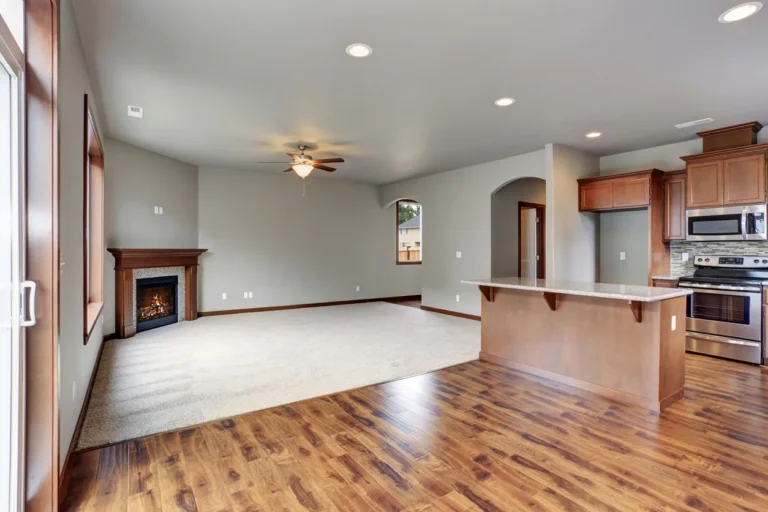Security Deposit Return in California: What Tenants and Landlords Need to Know
Introduction
Security deposits are a crucial part of the rental process in California. They give landlords financial protection against property damage, unpaid rent, or excessive cleaning costs when a tenant moves out. Yet, one of the most common issues renters face is the security deposit return in California, especially when deductions are involved.
California law outlines clear rules and timelines for how landlords must handle deposits. In this article, we’ll break down the state’s legal framework, the 21-day return requirement, what landlords can and cannot deduct, and how disputes are resolved. Whether you’re a tenant moving out or a landlord preparing for new tenants, knowing these rules helps you avoid unnecessary disputes.
California Security Deposit Laws Overview
A security deposit is money paid by a tenant at the start of a rental agreement. It protects landlords if tenants fail to pay rent, damage the property, or leave the unit excessively dirty.
Under California Civil Code Section 1950.5, landlords may only use the security deposit for:
- Unpaid rent
- Repairs for damages beyond normal wear and tear
- Cleaning costs needed to restore the unit to move-in condition
Landlords cannot use the deposit for routine maintenance, upgrades, or normal wear and tear, such as faded paint or worn carpets.
Legal Limits for Security Deposits in California
California sets limits on how much landlords can charge:
- Unfurnished rental: Up to two months’ rent
- Furnished rental: Up to three months’ rent
For example, if rent is $2,000 per month, the maximum deposit is $4,000 for an unfurnished unit and $6,000 for a furnished one. These limits prevent excessive upfront costs while still protecting landlords.
Timeframe for Security Deposit Return
The 21-day rule is one of the most important aspects of California’s security deposit laws.
- When the clock starts: The 21 days begin once the tenant vacates, not when the landlord receives the keys.
- Missed deadline: If landlords fail to return the deposit or provide an itemized list on time, tenants may file a small claims case. Courts can award up to twice the deposit amount plus legal costs if the landlord acted in bad faith.
- Pending repairs: If repairs are not complete within 21 days, landlords must still provide an itemized statement of anticipated deductions.
What Landlords Must Include in a Security Deposit Return
If deductions are made, landlords must provide tenants with:
- A detailed itemized list of deductions
- Copies of receipts or repair estimates
- Documentation such as photos to justify charges
Permitted vs. Prohibited Deductions
Allowed deductions include:
- Unpaid rent
- Damage beyond normal wear and tear (e.g., broken windows, large holes in walls)
- Excessive cleaning costs
- Replacement of missing items provided by the landlord
Not allowed:
- Normal wear and tear (e.g., faded paint, minor scuffs, worn carpets)
- Repairs caused by structural issues or property aging
How Tenants Can Dispute a Security Deposit Return
If tenants believe the deposit was unfairly withheld, they can:
- Request a written itemized statement if not received within 21 days.
- Negotiate by providing evidence such as move-out photos.
- File a small claims court case to recover withheld funds.
California courts often rule in favor of tenants when landlords fail to meet deposit return requirements.
Landlord Responsibilities and Tenant Rights
Landlords must handle deposits in good faith and follow state laws strictly. Tenants should also protect themselves by documenting property conditions at both move-in and move-out.
Tips for Tenants to Ensure Full Security Deposit Return
- Take photos or videos of the property at move-in and move-out.
- Deep clean before leaving.
- Request a move-out inspection with your landlord.
- Make small repairs like patching nail holes or replacing bulbs.
Special Considerations Post-COVID-19
During the pandemic, temporary protections affected how some landlords handled deposits. Most of those protections have expired, but tenants should review lease agreements for any remaining clauses that may still apply.
Frequently Asked Questions
Can a landlord keep the full deposit for unpaid rent? Yes, but they must provide an itemized statement.
What happens if the landlord doesn’t return the deposit within 21 days? The tenant can go to small claims court and may recover additional damages.
Can landlords deduct cleaning costs? Yes, but only for excessive cleaning beyond normal maintenance.
Conclusion
California’s security deposit return laws protect both landlords and tenants. Landlords must follow strict rules regarding deductions and timelines, while tenants must document and maintain the property. Understanding your rights and responsibilities ensures a smoother move-out process with fewer disputes.
Ready to Maximize Your Property’s Potential?
Let us handle the day-to-day operations while you enjoy hassle-free ownership. From tenant relations to maintenance, we’ve got it covered. Contact us today to learn more about our property management services.
Interested in Becoming a Property Manager?
Join our franchising program and build your own property management business with full training and support. Take the first step toward success today.





